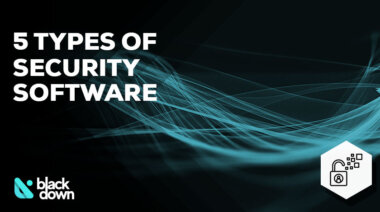The most dangerous crimes today are often happening right inside your email inbox. In our increasingly connected world, cybercrimes aren’t just dystopian fiction; they’re a growing, evolving reality that leaves many people behind. While most lock their front doors, they leave their personal and professional data wide open to intrusions they don’t even see coming.
This invisible war has forged a new kind of battleground where lines of code can either protect or dismantle entire systems. At the heart of this digital frontier lies a thriving community of professionals building careers not just in technology, but in resilience, vigilance, and strategic thinking. This isn’t just about stopping hackers. It’s about creating infrastructure that protects economies, healthcare, education, and individual freedoms. It’s time to rethink cybersecurity not as a niche, but as a calling.
Why Cybersecurity is Misunderstood
Despite its rapid rise as one of the most crucial fields in our modern world, cybersecurity still battles a significant image problem. The common perception often paints it as hyper-technical, locked behind complicated jargon, and accessible only to a select few, often imagined as tech wizards working alone in dark rooms. This widespread perception isn’t just holding talented individuals back; it’s dangerously contributing to a massive talent shortage in a field that desperately needs fresh minds.
Many people still believe cybersecurity is purely reactive; chasing threats, cleaning up digital disasters, or dealing with the aftermath of headline-making breaches. But that mindset is truly outdated. Today’s cybersecurity professionals are far more than just responders; they are:
- Strategic Architects: Designing systems that prevent attacks before they even begin.
- Proactive Defenders: Constantly anticipating and mitigating risks.
- Trusted Advisors: Guiding every sector on digital safety.
They think like adversaries and build like engineers, creating robust defenses.
Yet, even with this evolution, countless individuals still believe they’re not cut out for it. Perhaps they think they’re not technical enough, or that it’s too late to start a new career. Maybe they just don’t see themselves represented in the field. These internal narratives, however, are stopping people before they’ve even had a chance to truly explore what this exciting work entails.
The truth is, breaking into this dynamic field doesn’t demand hacking superpowers – it simply requires the right foundation. And for many, that foundation begins with a solid cybersecurity degree. These programs are meticulously designed to guide learners from basic principles to advanced, real-world applications. From grasping network vulnerabilities to delving into the psychology of social engineering, a structured path fully prepares students to tackle the complexities of modern cyber-crimes head-on. Crucially, it also helps shatter the myth that this vital work is reserved for only a chosen few.
Cybersecurity: A Powerful Driver of Innovation
The most crucial shift in mindset? Viewing cybersecurity not merely as a line of defense, but as an incredible springboard for innovation. This is no longer a field that simply waits for problems to appear; it actively anticipates them. These days, if a company really cares about cybersecurity, they tend to do way better than those who treat it like an extra thought. It’s not just a tech job anymore – it’s a real leadership role.
Professionals in this dynamic space are shaping everything from cutting-edge product development to company culture itself. They help teams to build secure-by-design software, and they influence critical policy decisions that impact how entire industries operate. When data becomes an organization’s most valuable asset, it’s the cybersecurity strategist who ensures that asset is not only protected, but also responsibly managed and leveraged for success.
What makes this field truly exciting is its incredible interdisciplinary nature. While you’ll certainly find coders and network engineers, the field also boasts a diverse range of crucial roles, including:
- Behavioral Analysts: Understanding the human element of security.
- Risk Managers: Assessing and mitigating potential vulnerabilities.
- Legal Experts: Navigating the complex world of cyber law.
- Educators: Training the next generation of digital defenders.
A career in cybersecurity today is as much about understanding people as it is about understanding systems. And as cyber-crimes continue to skyrocket in scale and sophistication, this human-centered approach becomes even more vital.
Next-Level Thinking: Why People Are Your Strongest Digital Defense
There’s a growing realization in the field that no matter how advanced the technology gets, people will always be the most vulnerable link. The alarming rise of social engineering, sophisticated phishing schemes, and insider threats clearly demonstrates that cybersecurity isn’t just about digital defenses; it’s profoundly about human behavior. Understanding how users interact with systems, how decisions are made under pressure, and how trust is manipulated are all essential to building truly secure environments.
That’s why the most successful professionals in this field don’t just know how to fix breaches, they are masters at preventing them through robust culture, comprehensive training, and leadership. As organizations become more aware of this, they’re looking for talent that brings not just technical skill but empathy, communication, and strategic thinking. In short, they’re looking for people who can lead as well as defend.
Conclusion: The Future Needs Builders, Not Just Defenders
Cyber-crimes will keep evolving. New threats will emerge. But so will new opportunities for those bold enough to step into the arena. Cybersecurity is no longer a hidden corner of IT; it’s a defining force in how the world functions. And it needs people who are ready to shape that future.
If you’re thinking about a career that blends technology with purpose, strategy with ethics, and impact with constant learning, cybersecurity might just be the right path. Whether you’re just starting or pivoting from another field, the chance to build something meaningful; something that protects lives, businesses, and the digital world itself, is waiting.
Now is the time to start building your own digital fortress. And with the right tools and mindset, you can be part of a global effort to secure the future from the ground up.
Thomas Hyde
Related posts
Popular Articles
Best Linux Distros for Developers and Programmers as of 2025
Linux might not be the preferred operating system of most regular users, but it’s definitely the go-to choice for the majority of developers and programmers. While other operating systems can also get the job done pretty well, Linux is a more specialized OS that was…
How to Install Pip on Ubuntu Linux
If you are a fan of using Python programming language, you can make your life easier by using Python Pip. It is a package management utility that allows you to install and manage Python software packages easily. Ubuntu doesn’t come with pre-installed Pip, but here…











